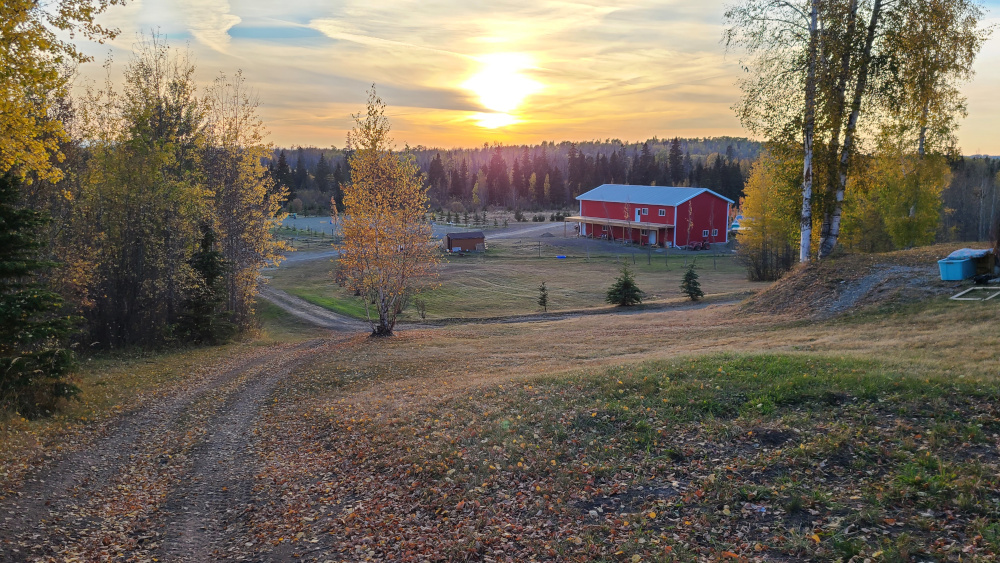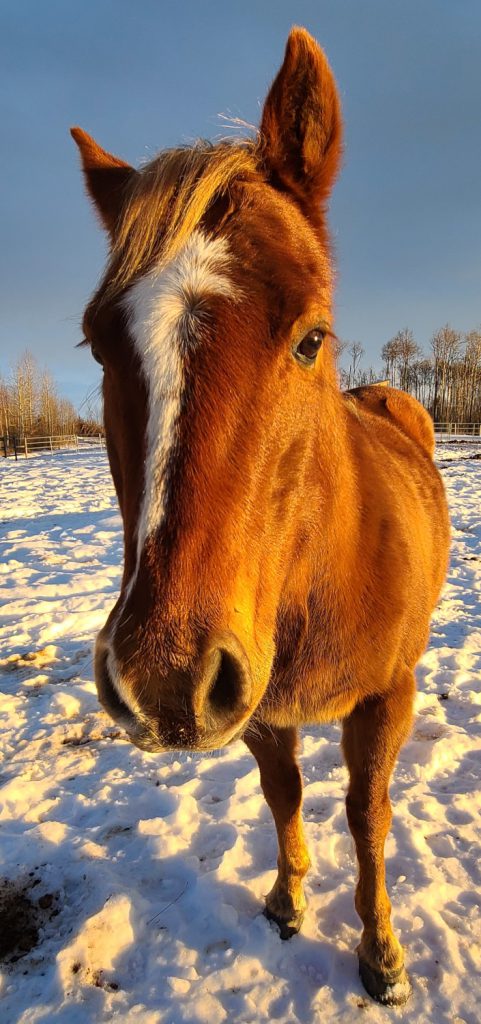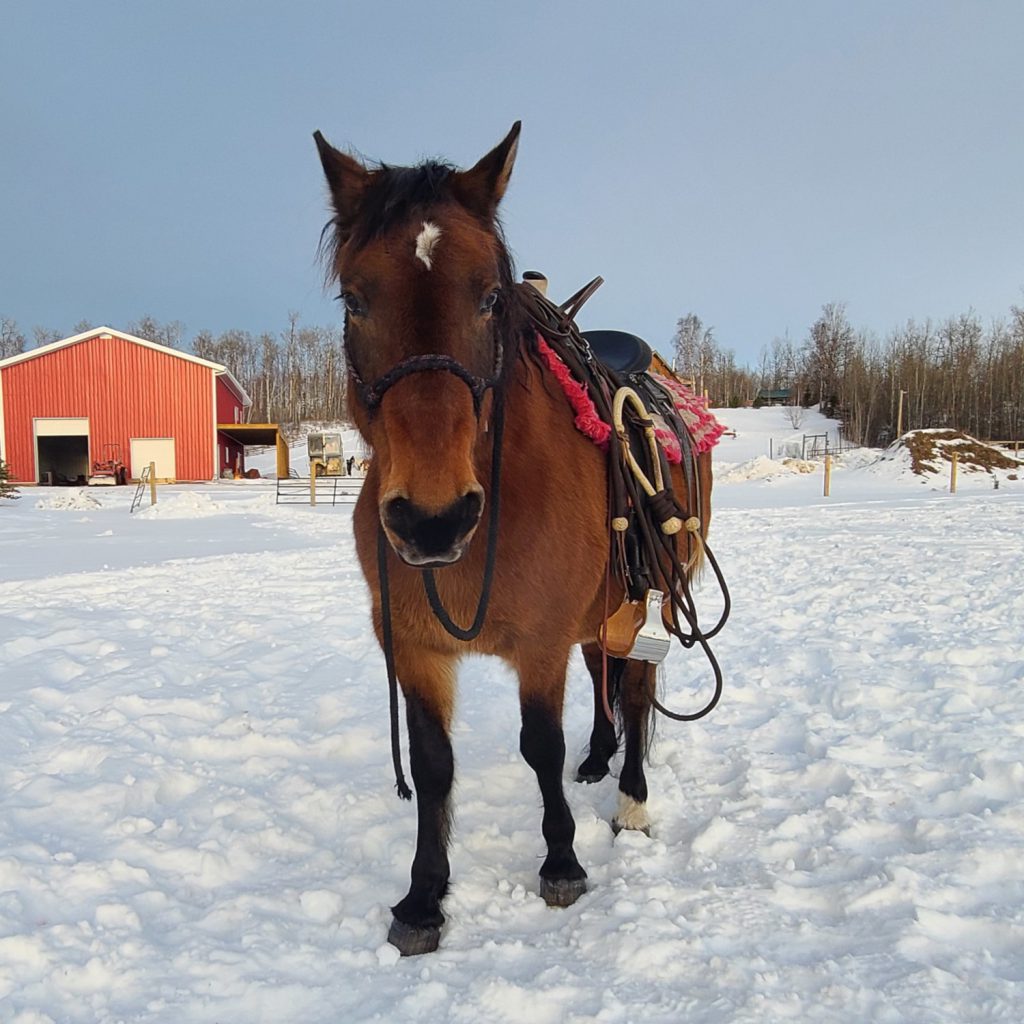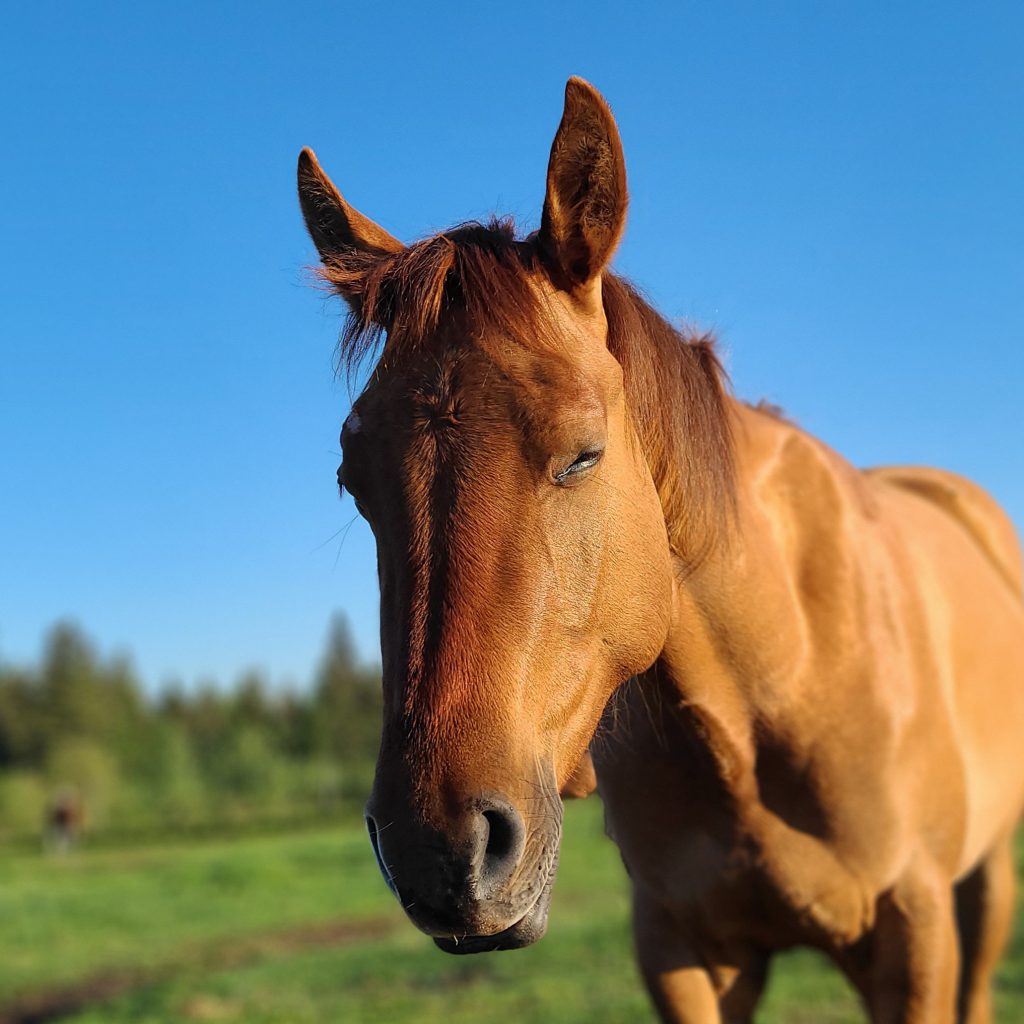Choosing positivity over negativity requires courage. Relational Horsemanship is, in part, a journey of discovering and celebrating our courage. It’s a journey of positivity.
Negativity Bias
There are many peculiarities about human thinking. As we advance in our scientific and psychological knowledge, we are better able to explain both how and why we think. How we perceive events and why we react in certain ways.
This not only provides us with explanations of why humans do the things they do, but it also allows us to come up with solutions to problems that we create for ourselves.
One such phenomenon is called Negativity Bias. Simply stated, this means that we tend to both register and focus on negative events more readily than positive ones. Here’s some examples:
- Focusing on criticism more strongly than praise.
- Falling into negative thinking loops (what-if scenarios).
- Recalling negative events to a higher degree than positive ones.
- An attraction, or even a seeking out, of negative scenarios instead of positive events.
This shouldn’t be surprising. It’s not a secret that we’re subjected to more negative news than positive news. You can do a simple search and find all the statistics you want about this. Consider television news programs, newspaper headlines and online news sources. We’re fed negative events to a greater degree than positive ones.
Why are we Negative?
I recently read a statistic that claimed that 80% of our thoughts are negative and 95% of those thoughts are repetitive. I call this looping – where we continually revisit (or reenact) a negative scenario in our minds. But why stick with the negative?
There are some evolutionary reasons. Simple survival is one of them. Negativity and fear are coupled together. Thinking about negative outcomes and situations can help save us: that’s our perception of danger. It raises our adrenaline levels and causes us to get ready to act.
This isn’t always the case. Worry, for example, is stagnating in the thought of a possible negative event. It is unhealthy. Whereas moments of anxiety can cause us to be more alert – consider driving on a busy highway – constant anxiety can become so great that it controls our thoughts and decisions.
Here’s another facet of negativity: A positive perception of luck depends on the negative experience of others. We feel lucky because we were not on the plane that crashed or the vacation resort wiped out by a hurricane or the town in the path of a tornado.
And yet another: Jealousy, an emotion that can have drastically negative social consequences, also comes from this: our perception of the positive experiences of others causes us to be negative.

2022 Was Nuts!
Last year, we were the subject of almost every weather event that our part of the planet can conceivably muster. I have a video I shot on my deck watching a tornado form. The radar showed it coming right at our house. I was ready to head to the basement, but it deviated within a few miles of us. A forest fire only six miles away caused us great concern. So we got trailers ready to haul our horses out of here if we had to. The negativity caused us to take preventative measures. A thunderstorm dropped a record amount of rain on our property causing our basement to flood. Not only that, we had to say goodbye to our old horse, Ty. Winds knocked down trees that we’d planted and picked up our utility trailer and smashed it into a fence, bending the axle. I could go on and on.
We’ve joked that we should have a camera crew following us around to document all the disasters that happen, because it’s so easy to focus on all those negative things. Those things cause us anxiety and stress and stick in our minds.
We actually have to be reminded of the good. Yesterday we had a contractor over and he said, “Wow. Your property is just amazing.”
Normally when someone says something like that, I start thinking about all the work that has to be done. But I made a different choice. I said, “You know what? It really is. I love this place.” And I meant it.

Consequences
With respect to horses, negativity has many serious side effects.
- Blaming the coach or trainer for our horse’s problems, or our lack of success.
- Mimicking negative training techniques of trainers, clinicians or coaches.
- Coming up with reasons to justify our own negative actions.
- Frustration that leads to quitting.
- Frustration that leads to taking our negative emotions out on our horse.
- Fear of failure that leads to a choice not to try, start or continue.
- Fear of injury that restricts us from advancing.
- A phobia of being judged, that leads us not to speak or act.
- Creating fictional reasons, or exaggerations, about why we should not do something.
Can’t, Don’t and Won’t
In our Amazing Horse Country clinics – particularly ones that feature obstacles and games, I have a little rule:
If I, or any of your fellow clinic participants, hear anyone utter phrases like, “I can’t.” “My horse won’t do that!” etc., then that person owes the group TimBits the next day.
Can’t, don’t and won’t are what I call stop words. And it may not please us to admit the truth: those words come from cowardice. They are like drawing a line in the sand we don’t have to cross; like putting up a wall we can hide behind.
Stop words are a clear presentation of negativity. They hold us back. They prevent us from progressing. They quash our potential.
If negativity precludes cowardice, then it’s sensible to draw the connection that positivity stems from courage.
Courage
Courage is not the absence of fear. Courage is not the absence of negativity. Instead, it’s the recognition of those, but with a choice to act proactively rather than avoid them or buy into them.
“I learned that courage was not the absence of fear, but the triumph over it. The brave man is not he who does not feel afraid, but he who conquers that fear.”
—Nelson Mandela
We are courageous. we have a passion for horses and the life they afford us. We have a desire to advance; to become better. To learn. We know what it takes to feel good about ourselves and what we do. And we all have the right to. Courage is also about standing up for what we believe in.

This is all true because we are horse-people There is no way we’d be riding around on the back of a thousand pound animal – at speed – if we didn’t have courage or conviction. Is there a risk involved? Sure there is. And so we make proactive, positive choices to support safety.
The style of horsemanship we practice at Amazing Horse Country is called Relational Horsemanship. There are several foundational components, including confidence. Confidence and courage go hand in hand. They are not only leadership aspects, but qualities that we develop in our horses. And we develop those together, with them.
Choosing Positivity
Choosing positivity sometimes requires making conscious choice. And that is often a tough one. Making proactive positive decisions is not always easy. It requires courage. That courage might be choosing to think differently. To change our course from what we’ve always done in the past; to break out of a pattern. A choice not to escalate an argument. A choice to accept that someone else has a good idea. As human beings, we are tempted to choose the negative; to be defensive. In many cases it can be the easier choice to make.
Keep in mind that no matter what course of action we choose, there will be people – and sometimes our friends and family – that tell us that our decision is bad. If I only had a dollar for everyone that’s been in a clinic that has a story about being told by someone they trust that the should give up on their horse. Just like we discussed, this negativity can be the result of jealousy. It can be the result of worry. It can be the result of honest concern.

Courage is important here. We have a passion. Simply by owning, riding and working with horses, we have committed to a course. We have demonstrated courage.
We are leaders. One of the actions of a good leader is listening to the input of those around us and acknowledging that input.
If we’re thinking of starting a colt for example, someone might tell us, “You’re too old for that. That’s dangerous. What are you thinking?” There is only one response:
“Thanks for your concern. I appreciate that.” You DO NOT have to justify your personal choices to anyone other than yourself.
I think that, as a society as a whole, we’re overly wrapped up in what others think. Social media is a serious driving force behind that (and a great way to promote and justify negativity). How many likes did our post get? It can very quickly become more about what other people think than about what we’re passionate and motivated by. Are we doing it for Facebook or are we doing it for OURSELVES and OUR HORSES?
So, it takes courage. Courage to choose positivity. We might be wired to focus more heavily on the negative feedback we get from those around us, but it’s entirely our decision to choose differently. Even when it’s tough.
From Negative to Positive
I can recall an event years ago, when I was in a mentorship program. I had spent the day working with my horses and at the end of the day, all I could think about was what went wrong. What wasn’t working. How I could have done better. Why I didn’t do what I should have in the moment. Thinking like that is easy. It’s natural for us.
But we’re all cognizant enough to recognize when we’re negative. So instead of focusing on my perception of the negatives, I changed my actions. Got out of a potential negative loop and created a new pattern for myself.
My new pattern was this: at the end of every day, I sat down and wrote a paragraph about three things that went right. That changed my entire focus. Simply doing that set the next day up for success. Try it. It works.
Everyone in our clinics excels.
Every person excels. Every horse excels. There is always success. I can guarantee that.
Clinics are also a great venue to witness polar opposites in viewpoints. Last year, I worked with a client and their horse and was simply ecstatic about what we were discovering, and their progress. And the next day the client said, “Yesterday was just awful. I can’t believe how bad my horse was.”
So how can I think a session was amazing and someone else think the opposite? We made different choices. Let’s be honest. Nothing is ever perfect. In everything we do, there are negatives. You might get a gold medal in a competition, but your coach might still pick your performance apart. So…cup half full or half empty?
What we focus on is entirely our choice. We can choose to focus on the negatives. That’s easy. It’s natural.
But is it also cowardly?
What Does This Have to do With Horses?
When we embark on a journey with a horse, be it learning a new skill in the saddle, training with a horse or simply learning to ride, we WILL be tempted by frustration, depression, anger and a host of other negative emotions.
Not everything will always go perfectly. And that is fantastic; something to be embraced.
Skills are developed when we struggle. Being uncomfortable and putting ourselves in unfamiliar situations causes our brains to work. This is how we learn. It’s not only a key to positivity, but it can be addictive.
However, uncomfortable and unfamiliar situations can cause us stress. A lack of practical knowledge can lead to frustration when the thing we’re trying isn’t working and we don’t know what to do. We all have the ability to recognize when we’re getting frustrated or feeling stress. So, when that happens, we need to program ourselves to act with positivity. There are a host of ways in which we can start that process:
- Having the courage to ask questions when in a clinic or a lesson, when we don’t understand or desire more clarity.
- Taking clinics and lessons and practising what we’ve learned. I know folks that take many clinics from many different clinicians but never spend time working with their horses, and become frustrated over the same situations again and again.
- Change what we’re doing. If what we’re attempting isn’t going as planned and is causing us (and our horse) to become frustrated, the best solution is to stop. Take a breather and then try something different.
- Seek knowledge instead of methods. If what we’re learning seems like a series of robotic steps, we need to find a program that explains the why.
- Avoid myths. There are many in the equine industry and we hear new ones every year. Myths are specific bits of information about a horse that are not true, yet are taught. For example, that a horse cannot see directly in front of them.
- Never blame anyone. Never blame our horse. We might feel an absolution of responsibility when we blame someone else (or our horse) when something doesn’t go right. Blame is a clear sign of an absence of leadership. Accepting responsibility requires courage, and is directly tied to positivity.
- Avoid taking actions that cause us to feel guilty. Stand up for what we believe in. For example, if someone tells us to jerk on a rein, and we find that that morally unacceptable, then we will offer an alternative and explain why. We are representatives not only of a positive style of horsemanship but representatives of the mental and physical well being of all horses. We need to stand up for that and be proud of it.
- See the reality in criticism. If we’re asking someone to critique us, we are exceptionally less defensive than when someone offers criticism without being prompted. Whether or not we feel the criticism is valid or even warranted, it’s important to acknowledge and thank the person for it. What we do with it after that is our choice. Simply saying, “Thank you.” turns potential negativity into positivity.
Every Cloud…
We have the ability, as human beings, to view any event in any way we choose.
I lost a good friend in a horse last year. It hurt so much to see him go. But I know he’s in God’s pasture with his best buddy, Spud, and that warms my heart. And I gained a colt, little Jerry; a wonderful new life.
We had a torrential downpour and had to deal with flooding. But that got rid of all the fire threats, gave the pasture a good soaking and caused us to evaluate drainage in our new construction projects.
We had a fantastic trip in Nashville, despite our flight being cancelled 5 minutes before we were supposed to board and two feet of wet snow trying to prevent us from getting to the airport. We built a barn, roads, horse pens, an arena, rebuilt the cabin, constructed trails and obstacles.
Again, the list can go on and on. We can focus on all the negatives, or we can focus on all the good things; there were actually way more of them than the bad things.

Courage comes when we choose positivity when tempted by the negative. Courage is a choice.
Leadership is courage in action. Leadership comes when we recognize we’re being presented with that choice and choose positive action. Our horses rely on us to be leaders. To create scenarios of positivity for them to succeed in.
We have a desire that our horses be courageous; to try what we ask even when they’re scared, frustrated or lacking an understanding. Can we stand up to the plate and be courageous too? For our horses? For ourselves?
Yes, we can. And we must. It’s a part of horsemanship. And we are horsepeople.
Scott Phillips
February 2023
